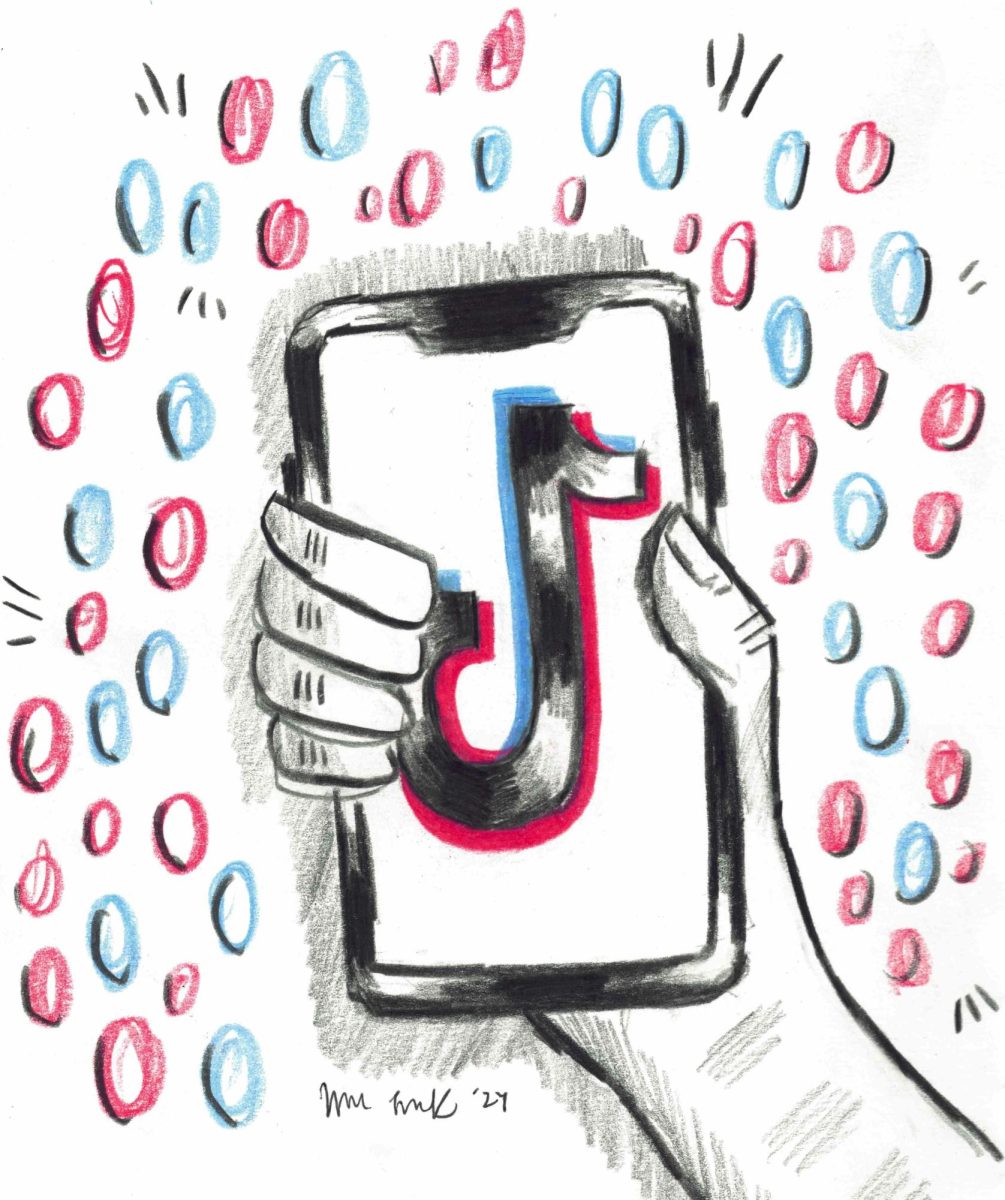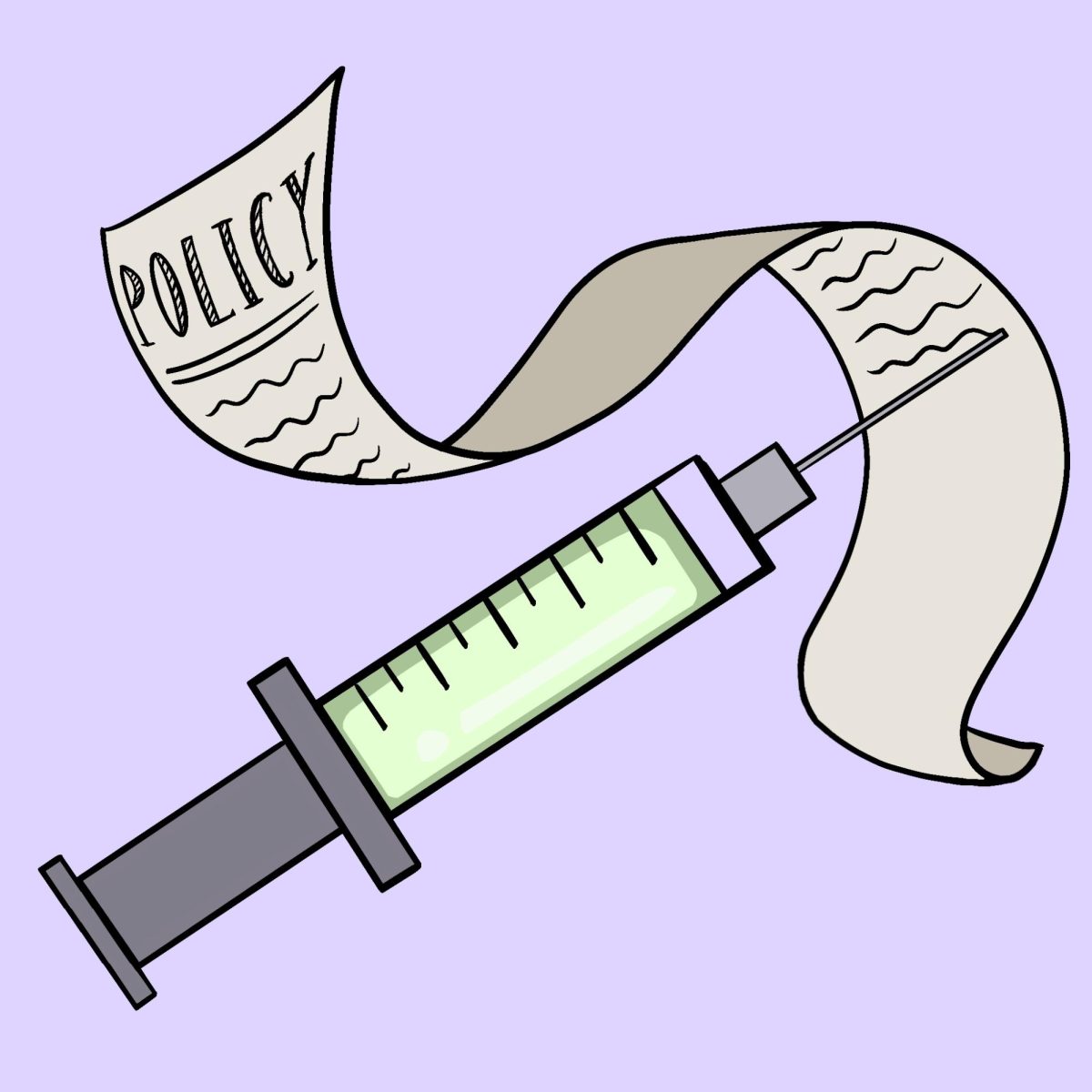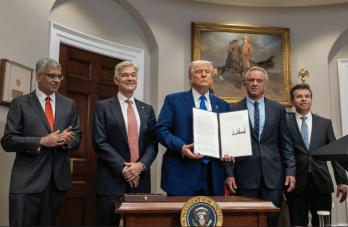In March, Democratic and Republican Senators pushed for the declassification of information shared at a closed-door intelligence meeting regarding the influence of TikTok, with many Senators calling for House legislation that would force the owner of TikTok to sell the app or face a ban on all U.S. devices. The vote was 352-65, and the bill has now moved to the Senate for further consideration. The U.S. government’s primary concern driving this legislation is the potential national security threat posed by TikTok’s data collection practices and its ties to the Chinese government. This possible ban has now sparked massive debate across the country.
A primary concern is TikTok’s data collection practices. As Nowshin Chowdhury ’26 put it to the Register Forum, “There are valid reasons to be concerned about TikTok’s data collection. For example, data privacy, potential surveillance, and national security implications.” Chowdhury is just one of the many people who feel uneasy about how TikTok collects user data and its potential to misuse user data.
At the center of these worries are TikTok’s possible ties to the Chinese government. Many worry that the app’s company owner, ByteDance, could be sharing user data with Chinese authorities, leaking personal information and posing risks to national security. This has led to calls for a greater investigation on how TikTok operates and demands for the app to be clearer about the collection of user data.
Muhtasim Abir ’27 suggested to the Register Forum, “TikTok has a pretty big and long privacy policy. I feel that if they shortened it or made it easier to understand and read, people may feel more comfortable using TikTok as they will actually understand what is being done with their data.”
Some users see the positive side of a potential ban. Jane Meek ’27 told the Register Forum, “Overall, I think the app would actually be better for me than worse, to be honest. My work is always delayed because I want to watch my reposts and saved videos, so I think it is better if TikTok would get banned.” For users like Meek, a TikTok ban could mean increased productivity and fewer distractions caused by the app.
If a ban does occur, it would impact the lives of millions of users and content creators. The app has left a cultural mark, launching new trends, memes, and even careers. Young people, in particular, have loved the platform, finding a place for self-expression and creativity. Losing this space could have large social and emotional impacts. On the other hand, many argue that the potential risks outweigh the benefits of the app. They point out the need to protect sensitive user data from falling into the wrong hands.
While national security and data privacy are top concerns, the impact on TikTok’s users cannot be overlooked. Whether the ban happens or not, the TikTok debate has shed light on the difficult balance between new technology, personal privacy, and national interests in today’s world. As the discussion continues, all sides will need to weigh the costs and benefits carefully.







